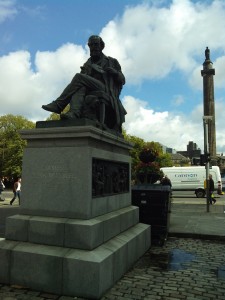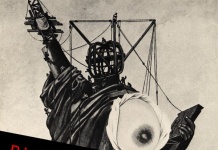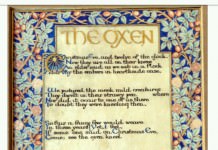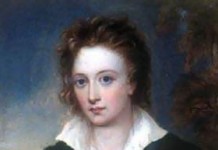 While at the Edinburgh International Book Festival, I’d like to pay tribute to one of the city’s many great intellectual sons: James Clerk Maxwell (1831-79), the titanic Victorian scientist whose work was described by Albert Einstein as the “most profound and the most fruitful that physics has experienced since the time of Newton.” His genius touched pure mathematics, electromagnetics, optics (color theory), kinetic theory and thermodynamics, astronomy (the rings of Saturn), and many other disciplines. And he was also a poet.
While at the Edinburgh International Book Festival, I’d like to pay tribute to one of the city’s many great intellectual sons: James Clerk Maxwell (1831-79), the titanic Victorian scientist whose work was described by Albert Einstein as the “most profound and the most fruitful that physics has experienced since the time of Newton.” His genius touched pure mathematics, electromagnetics, optics (color theory), kinetic theory and thermodynamics, astronomy (the rings of Saturn), and many other disciplines. And he was also a poet.
A devout Presbyterian despite his probing scientific mind, Maxwell had many other facets to his personality. One of these was the humorous – and sometimes dialect – poet. In this, he recalls another contemporary mathematics don, Lewis Carroll.
Some of his poetry reads like exactly what you could expect a scientist-poet to produce:
I come from empyrean fires —From microscopic spaces,Where molecules with fierce desires,Shiver in hot embraces.The atoms clash, the spectra flash,Projected on the screen,The double D, magnesian b,And Thallium’s living green.(“To the Chief Musician upon Nabla: A Tyndallic Ode”)
Other verses are much droller, and marked with the Galloway accent that dogged his youth:
Gin a body meet a body
Flyin’ through the air.
Gin a body hit a body,
Will it fly? And where?(“Rigid Body Sings”)
A collection of his verse was published posthumously in 1882, and some of it can be seen here. Much of this poetic eloquence came from his great love of the poetry of his native land, and the month before the Scottish independence referendum seems an appropriate time to celebrate yet another great Scot.

































